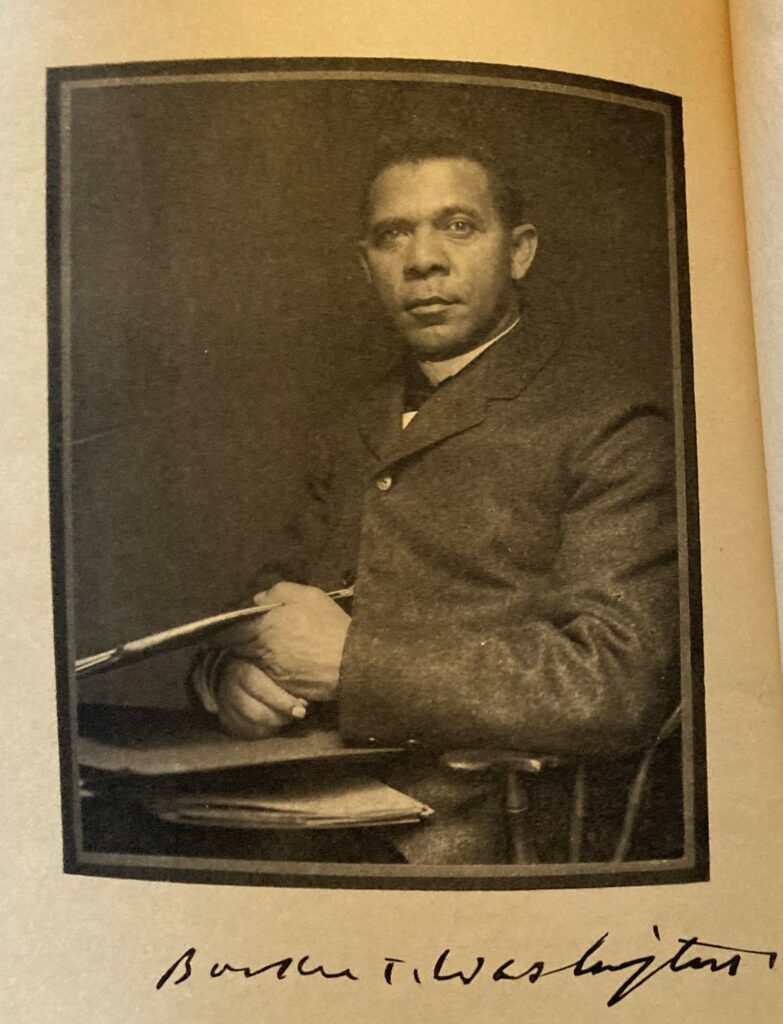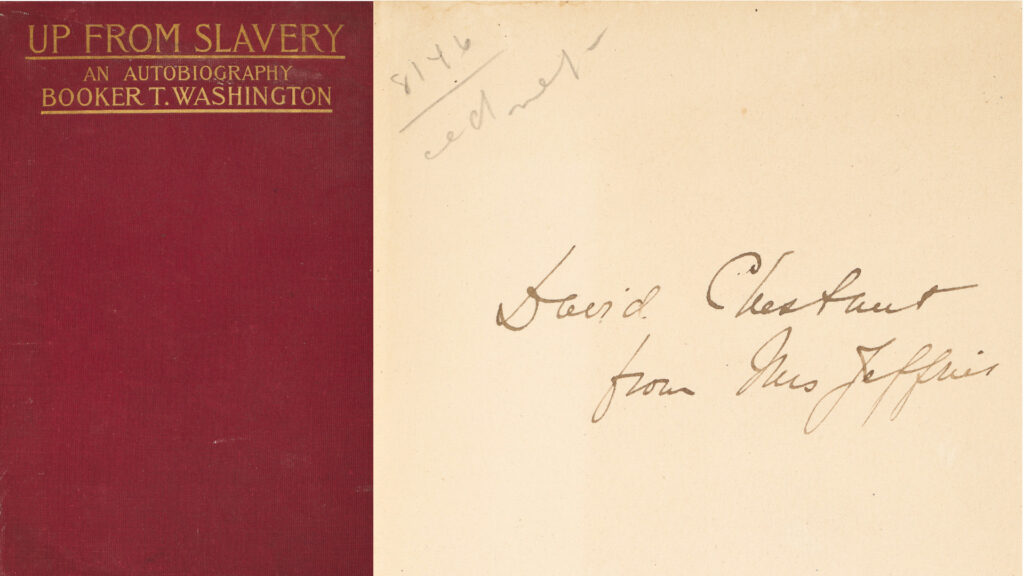 Eustis Estate
Eustis Estate
Booker T. Washington

Booker T. Washington (1856-1915) was an American author and educator who became a well-known leader in the African-American community in the 1890s through the 1910s. He was born into slavery in 1856 in Virginia. After emancipation, he not only earned a formal education for himself but dedicated himself to helping other former slaves and their descendants do so. He was one of the founders of the Tuskegee Institute in Alabama, one of the first historically-Black colleges, which continues to today. He gained national prominence after his famous “Atlanta Compromise” speech, which said that education was the way to achieve progress rather than fighting against the racist systems in the Jim Crow segregated South. Washington was not without controversy, as not everyone supported his views, with many other Black political leaders finding him too “accommodationist.”
Washington published his autobiography, Up From Slavery, in 1901; the book was a best-seller prompting him to embark on a series of lecture tours. In July of 1903, he visited Boston to speak at the historic A.M.E. Zion Church on Columbus Avenue. The church was a center of Black life in Boston and had a large congregation that may have included the second David Chesnut and his family. Washington was set to debate William Monroe Trotter, editor and publisher of the self-described Black radical newspaper the Boston Guardian. The fiery Trotter had long been critical of Washington’s more moderate views, citing them as a hinderance to racial equity and claiming that they encouraged the separate and unequal treatment of Black communities. On a sweltering July evening over 2,000 spectators gathered to watch the two men debate, but the conversation quickly dissolved into a shouting match, and then into chaos as supporters of each speaker clashed inside and outside the church. Several people were arrested before the crowd was dispersed. The event would come to be known as “The Boston Riot,” and in its aftermath Trotter and two of his associates were charged with disturbing the meeting. Several witnesses asserted that he had intentionally undermined the debate by planting loud detractors in the audience. All three men were found guilty of the charges and the Boston Sunday Journal noted that the disturbance was “in no way expressive of the feeling entertained toward Mr. Washington among the colored people of Boston and the vicinity.”
That same year, David Chesnut II was gifted a copy of Washington’s book Up From Slavery by Mrs. Emily Jeffries, W.E.C. Eustis’ widowed sister who lived on the adjoining property to the Eustis Estate. It is likely that the Chesnut family would have assisted with the horse and carriage needs of the Jeffries house as it was, in effect, part of this family compound. It is an interesting gift for her to give to David Chesnut and possibly is a commemoration of his attendance at the event in Boston. In any case, he kept this book in his possession for the remainder of his life.
